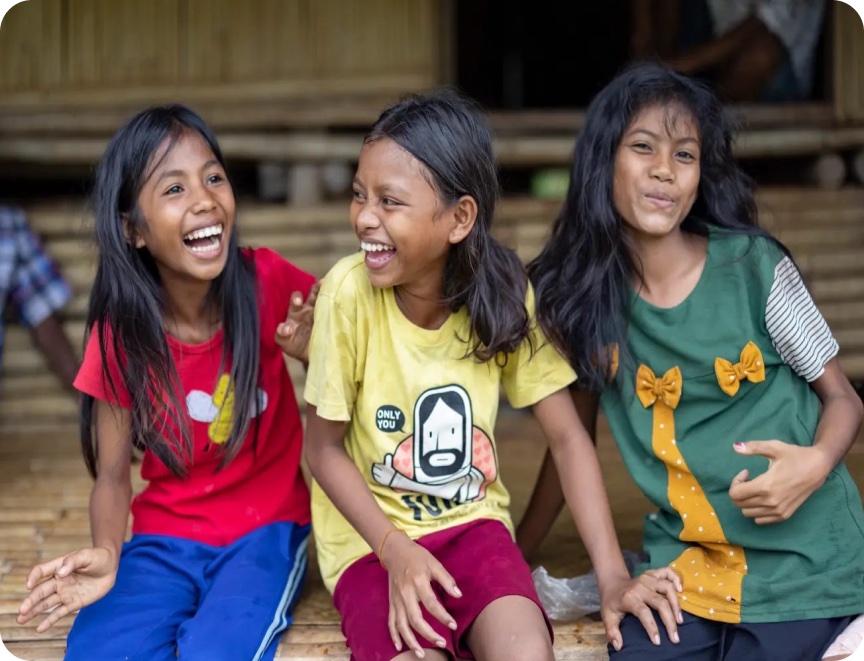Ko Htet lives in a small, coastal town in rural Myanmar. He is a clever, happy young boy who is passionate about learning. After two years of being unable to go to school, he now has the opportunity to return to learning through ChildFund Myanmar’s education program.
Since the start of the COVID-19 pandemic, many state schools have closed and the ongoing political unrest has added further disruption to children’s education. This meant that children around the country were forced to learn at home the best they could, with whatever resources they had available to them.
While at home, many children are expected to help their parents in their work and in the home and some children spend their time idly.
“My parents work at the fishery. I have to help my parents’ works. It is also the same for other children in this area – they also have to help their parents’ work,” said Ko Htet.
Although some families could arrange individual tutoring, most could not afford the added expense.
One concerned parent said: “Because of COVID-19 and the political situation, our child had to stop their education and spent most of their time staying home and playing online games. We were unhappy with this situation. Now our child can continue learning with this education program.”
ChildFund worked in consultation with local partners to identify opportunities for children to access an education. The education program opened small informal classrooms across the country so that children could safely return to learning. “Because of no learning for about two years, I’d forgotten many of the lessons I’d learned. I could only just recall the lessons when my teacher now, reminded me,” said Ko Htet.
ChildFund and its partners trained local volunteers to conduct the lessons and run the informal classrooms. These volunteer teachers are trained in teaching numeracy and literacy, and encouraging play. They are bridging the gap in education that children have missed out on these last few years while getting them ready for the new academic year starting in June.
“Since our teacher is very good at teaching, I improved my general knowledge, and could recall about the lessons I’d forgotten. The lessons we are studying now are different to the lessons we learnt before at school. We learn to read, and learn the lessons by playing – I think the lessons we study are better,” said Ko Htet.
With COVID-19 cases still rising across the country in early 2022, disrupting education and limiting access to health care, the informal classes are socially distanced and each child has access to a face mask or shield.
“The teacher also gave us school bags, pencils, exercise books, drawing crayons, erasers, face shield, mask and hand sanitisers. We are also taught through playing and I am so happy to learn in this way.”
ChildFund has been supporting and encouraging children that cannot attend in person, to attend online. But with unreliable electricity and internet connectivity, this has proved to be challenging.
The program supported the volunteer teachers with the skills to support the mental wellbeing of their students. They will be able to support children and young people in their classrooms overcome any psychosocial challenges they face as a result of the prolonged schools closures and COVID-19 lockdowns.
For children like Ko Htet, being able to attend the informal classrooms has been an exciting opportunity and signals a return to normal life. “I’m so happy that I can attend class again.”
As the school academic season has started in June. This program has completed its support in May to more than 1,300 students and 40 teachers from eight different Regions and States.




























